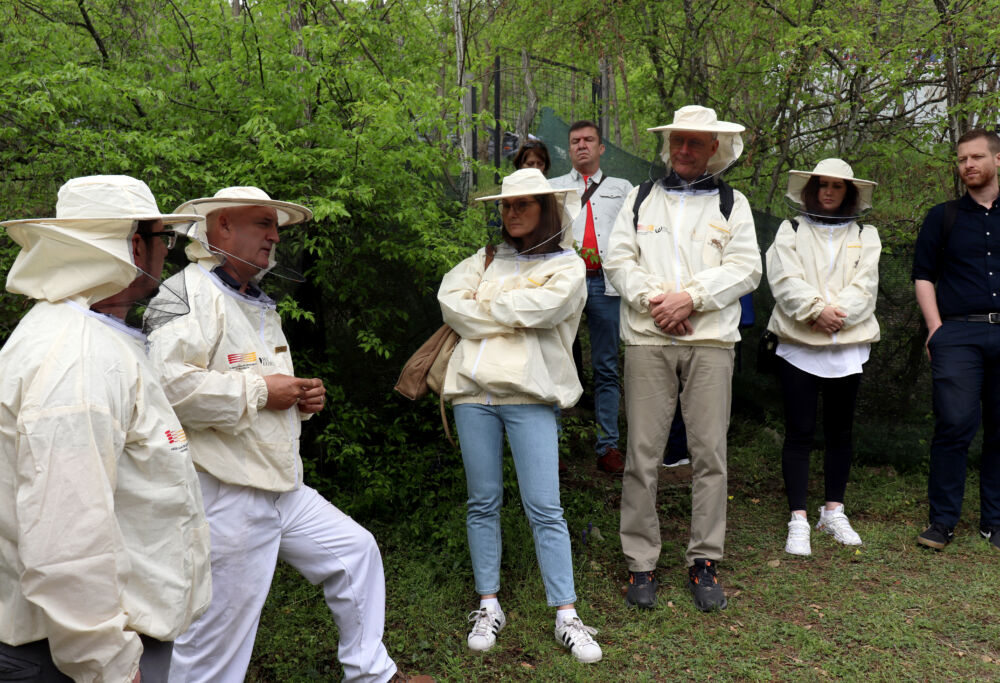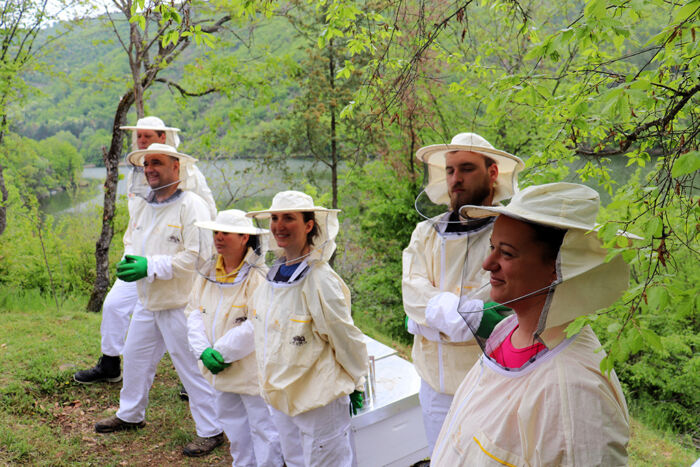Creating positive changes in the lives of the poor and marginalized
Date
May 10, 2022
The representatives of the implementing partner Meden Istok and the National Federation of Farmers of North Macedonia (left) presenting in front of Sida and We Effect Europe representatives (centre to right). Photo by Ljiljana Mitevska.
Sida’s Senior Advisor Lollo Darin, Sajma Gacevic, Programme Administrator, the Head of Development Cooperation at the Swedish Embassy in North Macedonia, Mikael Atterhog and Ivan Petrovski, National Programme Officer at the Embassy, had the chance to experience the challenges that farmers, rural communities and marginalized Roma population in North Macedonia are facing and how our IISEE project can help mitigate some of the consequences.
Our first stop during the field visit was Meden Istok farmers’ association, the only association in the country with a sustainable concept in beekeeping, promoting sustainable use of natural resources and application of biotechnical methods to ensure good quality and safe bee products.
Our project intervention partner Meden Istok is focused on attracting young people from the rural areas who want to start a beekeeping business, offering them trainings and certificates for sustainable honey production. Soon after the trainings the beekeeper apprentices will start producing and selling their own honey under the certification mark “Sustainably produced honey and other bee products”. All of this is supported and facilitated by our partner organisation in the country, the National Federation of Farmers – NFF.

Next we visited the textile factory MK Deltex from Kochani, another IISEE intervention partner, serving as a rare example of ensuring stable sources of income for the marginalized population, such as the Roma.
The number of the Roma employees in the private companies is concerningly low. This is a disadvantage for the Roma’s inclusion in the labour market and their job retention. However, with proper information, motivation and career guidance this can change for the better. The factory MK Deltex is such an example that has managed to ensure 100% retention rate of employees since our project intervention stated.
Our IISEE project is focused on the well-being and crating greater opportunities for the rural and marginalized communities, with the aim of improving inclusiveness and reducing inequality, all achieved through the market system development (MSD) approach.
The field visit enabled our Swedish guests to have a direct insight into how the project can contribute to creating positive changes in the lives of underprivileged and poor communities in North Macedonia.